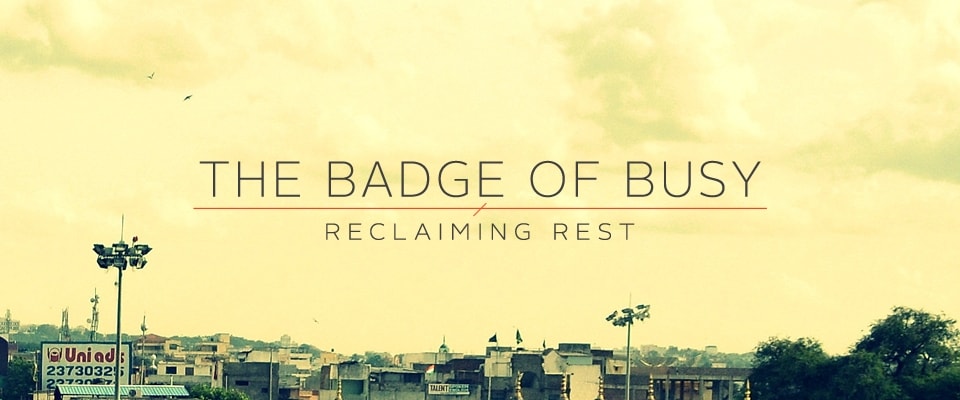If you’ve been in Christian circles long enough, you’ve heard at least a sermon or two on The Great Commission. You know, Matthew 28:16-20? We love it. How couldn’t we? Jesus defeats the grave. He resurrects. Then he commissions us, “Go and make disciples of all the nations.” We’re invited to get swept up into the unfolding drama of God’s redemption and restoration of our souls and the cosmos. Who doesn’t love the Great Commission? This is a teenage pep rally for the Christian soul.
The problem is that the context of the Great Commission is often neglected. It starts with Verse 16. Nobody wants Verse 16. Don’t give me Verse 16! What does it say?
“Now the eleven disciples went to Galilee.”
Formerly the twelve. A tight group of Jesus’ closest followers and friends. But now eleven. No more Judas. Often I don’t think we let the weight of this sink in. We write Judas off because he betrayed Jesus. While we don’t vocalize it, we might even say “Good riddance.” But what Judas did, the actions he took, didn’t happen in an isolated bubble. They happen within a group of tight knit friends.
Consider the whole story (Matthew 26:47-50 and Matthew 27:3-5). Judas betrayed Jesus, for money. He betrayed all his friends. He abandons the movement. Of course, Jesus warned them that this would happen. But that wouldn’t erase the emotional devastation that this would cause. Can you imagine the sinking, sickening feeling that would have washed over Jesus’ disciples when the authorities arrived with Judas in the garden of Gethsemane? Yet that would be nothing compared to what was to come.
The next day, Judas repents and returns the 30 pieces of silver. Overcome with remorse, we’re told Judas hanged himself. He committed suicide. A man who had been among Jesus’ closest followers for three years, committed suicide. The betrayal would have been difficult enough. But for Judas’ life to end this way? The disciples could not have prepared for this. When they heard the news, grief would have struck them despite everything that had happened the evening before.
With all the weight of feeling betrayed, the shock of grief in mind, consider Verse 16 again.
“Now the eleven disciples went to Galilee.”
The context makes that sentence feel more weighty, doesn’t it? That’s the context of the Great Commission. Matthew writes, “Now the eleven disciples went to Galilee, to the mountain to which Jesus had directed them. And when they saw him they worshiped him, but some doubted” (Matthew 28:16-17).
We’re reminded that faithfulness is a disposition not determined by circumstances. Despite everything that has transpired and all the events that would have turned their world upside down — the suicide of Judas, the crucifixion of Jesus, the astonishing accounts of resurrection being reported — the disciples still follow Jesus’ commands. They go to the mountain Jesus had directed them. And there they find him. In the midst of their pain and grief and confusion, they find Jesus. And some worshipped. And some doubted.
I’ve come to see with greater clarity that I don’t need a gospel that guarantees me a smooth sailing through life. I need the gospel which meets me in the tragedy that can be life.
Of course, among the doubting are people like Thomas. “Did this really happen? Resurrection? Nah. Dead stuff stays dead. I need to touch the wounds to believe it.” Of course that’s present here. But doubt often grows in the soil of tragedy. Some likely asked, “After all that has happened, what difference does the resurrection really make?” Grief has that effect.
Julia and I moved back to Vancouver in the beginning of 2012 to church plant. We started to learn our city’s culture and build our launch team. Then I got a call in November of 2012. It was from the church I had been a part of in Orlando for six years.
“Alastair, Isaac resigned.”
“What? What happened?! Why?”
“Moral failure.”
I was devastated.
Isaac was in countless ways a spiritual mentor and friend. He baptized me. He officiated my wedding. He is the one who helped me discern my calling into ministry. He’s the one who convinced me to go to seminary. He’s the one who gave me my first job in ministry. He’s the one who taught me how to preach. He’s the one who commissioned me to church plant. He’s the one who believed in me, who rooted for me, and continually encouraged me.
I felt betrayed. Abandoned. I felt alone in the trenches, cut off from a major support and influence in my life. Yet I pressed on. Almost a year later, after a lot of hard work, we launched St. Peter’s services. A month later, in December of 2013, I got a phone call.
“Alastair. I have terrible news. Isaac committed suicide.”
I went numb for about 6 months.
I threw myself into work. I focused on tasks. I almost burned out. I took a strongly recommended — some may say forced — month-long sabbatical last summer. It wasn’t a vacation, it was recovery. Isaac’s suicide had wrecked me. I needed a serious break to recover. Despite knowing the message of the gospel, despite experiencing the awe of the resurrection over and over and over again in my life, I was full of doubt. I wanted to leave ministry altogether. Like a broken record, I asked repeatedly, “What difference does Jesus really make in this world? In a world where this sort of betrayal can happen? A world where an incredible man takes his own life?”
I’ve begun the difficult work of tearing down the bricks of doubt that have built up between me and God during my season of grief.
Only this past November did I finally start to come to accept Isaac’s death. I’ve come to accept the pain it has caused and will continue to cause in my heart. And I’ve begun the difficult work of tearing down the bricks of doubt that have built up between me and God during my season of grief.
Why am I telling you all of this?
First, we need to talk about mental health issues. They’re all over the Scriptures. We have to talk about suicide. It devastated the first followers of Jesus. We have to talk about the pain we experience. I don’t know how the church settles for proof-texts, platitudes and Jesus fish when people are suffering. We worship the one who had his body ripped apart for our sake. We need to learn how to weep with those who weep and bear one another’s burdens again. We’re called to suffer together.
If you have been struggling with depression, or hopelessness, if you’ve thought about harming yourself: please don’t. Please talk to someone. Please reach out. Your life matters to God.
And secondly, the greatest calling God has ever given — the Great Commission — is given to us all. But it’s a calling that meets us in the very real and broken world. It’s a calling that came to eleven not twelve. It’s a calling that came to some who were crippled with grief and doubt. But think about what Jesus said to his heart-broken, confused followers, “All authority in heaven and on earth has been given to me … Behold, I am with you always, to the end of the age” (Matthew 28:18-20).
Despite how things may appear, or how our doubts may convince us otherwise; when life goes south, when things fall apart, when tragedy hits, in a very mysterious way Jesus still has authority over all things. We’re also given a profound promise: he is with us always. In grief. In loss. In pain. In heartache. In tragedy. In suicide. He is there. In joy. In laughter. In hope. In healing. In resurrection. He is there.
I’ve come to see with greater clarity that I don’t need a gospel that guarantees me a smooth sailing through life. I need the gospel which meets me in the tragedy that can be life. The gospel that meets me even in my doubt. If Jesus can’t meet us in these places, if the resurrection doesn’t bring life out of dead stuff, then the gospel isn’t a worthwhile message. Because the world that Jesus is sending us out into isn’t a clean, tidy, and easy world.
The good news is that resurrection and calling comes not when you’re ready for it, but in the places you need it most. While doubt often grows in the soil of tragedy, the soil of tragedy is prime to give birth to resurrection. We’re called to have our heads and hearts caught up in heaven, but with our feet on the ground. Because life will be full of pain and beauty, disappointment and hope, tragedy and resurrection. And the good news, the very good news, is that Jesus meets us there. Resurrection meets us there. And all the darkness and dead stuff, it will come back to life.




